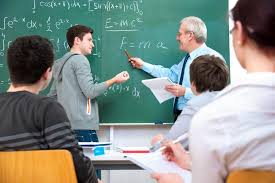The Power of Education: Shaping Minds, Changing Lives
Education is the key to unlocking a world of opportunities and possibilities. It goes beyond the confines of classrooms and textbooks; it is a transformative force that shapes minds and changes lives.
Empowering Individuals
Education empowers individuals by providing them with knowledge, skills, and critical thinking abilities. It equips them to navigate the complexities of the modern world, make informed decisions, and contribute meaningfully to society.
Breaking Barriers
Education breaks down barriers – be it social, economic, or cultural. It opens doors to equal opportunities and helps bridge the gap between different segments of society. Through education, individuals can rise above limitations and strive for a better future.
Fostering Innovation
Education fuels innovation by encouraging creativity and problem-solving skills. It inspires individuals to think outside the box, explore new ideas, and push the boundaries of what is possible. A well-educated society is a breeding ground for innovation and progress.
Promoting Social Change
Education plays a pivotal role in promoting social change by instilling values of tolerance, empathy, and respect for diversity. It cultivates a sense of global citizenship and encourages individuals to work towards a more inclusive and equitable world.
Investing in the Future
Investing in education is investing in the future. By prioritizing education, we lay the foundation for sustainable development, economic growth, and overall prosperity. Education is not just an expense; it is an invaluable investment with long-term returns.
Closing Thoughts
Education holds immense power – it has the ability to transform lives, uplift communities, and shape the course of history. As we recognize the significance of education in today’s rapidly changing world, let us commit to nurturing a culture that values learning, embraces diversity, and empowers individuals to reach their full potential.
Understanding Education: Key Questions and Answers
- What is education’s role in society?
- What are the 4 pillars of education?
- What are the 5 types of education?
- What is this education?
- Is the spelling of education?
What is education’s role in society?
Education plays a crucial role in society by serving as a cornerstone for progress, development, and transformation. It equips individuals with the knowledge, skills, and values needed to navigate the complexities of the world, make informed decisions, and contribute meaningfully to their communities. Education not only empowers individuals to pursue their aspirations but also fosters social cohesion, promotes equality, and drives innovation. By shaping minds and nurturing talents, education acts as a catalyst for positive change, laying the groundwork for a more inclusive, enlightened, and prosperous society.
What are the 4 pillars of education?
The four pillars of education encompass the fundamental principles that form the foundation of a holistic learning experience. These pillars include learning to know, learning to do, learning to be, and learning to live together. Learning to know emphasizes acquiring knowledge and developing critical thinking skills. Learning to do focuses on practical skills and hands-on learning experiences. Learning to be involves personal development, self-awareness, and emotional intelligence. Learning to live together promotes social interaction, empathy, and cooperation in diverse communities. Together, these pillars create a well-rounded educational framework that nurtures the mind, body, and spirit of learners.
What are the 5 types of education?
There are various types of education that cater to different learning needs and objectives. The five main types of education include formal education, informal education, non-formal education, vocational education, and special education. Formal education typically refers to structured learning within institutions like schools and universities. Informal education encompasses learning that occurs outside traditional academic settings, such as through life experiences or self-directed study. Non-formal education involves organized educational activities that do not follow the conventional schooling system. Vocational education focuses on developing practical skills for specific trades or professions. Special education is tailored to meet the needs of individuals with disabilities or special learning requirements. Each type of education plays a crucial role in shaping individuals’ knowledge, skills, and personal development.
What is this education?
Education is a multifaceted process that encompasses the acquisition of knowledge, skills, values, and attitudes through formal or informal means. It is not just about memorizing facts or passing exams; rather, education is a journey of exploration, discovery, and personal growth. Through education, individuals develop critical thinking abilities, problem-solving skills, and a deeper understanding of the world around them. Education empowers individuals to fulfill their potential, pursue their passions, and contribute meaningfully to society. It is a lifelong pursuit that enriches lives, broadens perspectives, and opens doors to endless possibilities.
Is the spelling of education?
The correct spelling of the word is “education.” Education is a fundamental aspect of personal growth and societal development, encompassing the process of acquiring knowledge, skills, values, and attitudes through various formal and informal means. It plays a crucial role in shaping individuals’ understanding of the world and equipping them with the tools needed to navigate life’s challenges and opportunities.

